Implementing the lifestyle of the Noble Prophet sallallahu alaihi wa sallam within our lives in all aspects is something that we need to aspire to. Imam Malik rahimahullah says, “The Sunnah is the ship of Nuh alaihis salaam. Whoever gets on that ship will be saved and whoever does not will be drowned.” Here are some aspects regarding perfume from the Sunnah, as well as some background so that we can gain a better appreciation of it.
Universal use
“Four acts are from the lifestyle of all the Prophets, modesty, using perfume, cleaning the teeth with the Miswak, and getting married.” (Tirmidhi) One can surmise, looking at the universal culture of incense, fragrance and perfume across history within many of the religions that they had originally got this practice from the Prophets sent to them.
Frankincense is used by the Roman Catholic Church in religious ceremonies. It is obtained from trees in southern Arabia for the last 5,000 years. Thousands of tons are traded annually. Incisions are made in the trunks of trees that are 8-10 years old to produce gum resin. This hardens over two weeks and is harvested. Frankincense costs around R100,000/litre and in 2018 $190 million worth of the oil alone was traded.
Sunnah
- The Prophet sallallahu alaihi wa sallam remarked, “Beloved to me of the things of this world are women and perfume, yet the delight of my eyes is in Salaah.” (Nasai) Islam elevated the status of women from the degradation they faced previously.
- Hazrat Aeysha radhiallahu anha says that she used to apply the best perfumes on the Prophet sallallahu alaihi wa sallam to such an extent that one could witness the glistening of the perfume on his hair and beard. (Nasai)
To use perfume is a Sunnah. Similarly, to accept it when it is offered is also a Sunnah. The Prophet sallallahu alaihi wa sallam never refused perfume when it was offered to him. (Bukhari) Keep in mind people’s sensitivities and allergies, etc when offering. One should not refuse a gift of perfume out of courtesy, but if for some reason you do not wish to take it, you would not be sinning.
Art of Perfume making
The art of perfume making as we know it today owes a great debt to the Muslim chemists of the past.
- Al Kindi in the 9th century wrote the Book of the Chemistry of Perfume and Distillation which contained over 100 recipes for fragrant oils, aromatic waters and other types of perfumes. He also described the Alembic (derived from the Arabic) used for distillation of liquids. This is still used in a modern form.
- Ibn Sina wrote about the process of extracting oil from flowers by distillation which is still the most used method today. In fact, distillation is an essential process in the petrol industry to separate the fuel from the crude oil. Muslim scientists like Jabir ibn Hayyan and Ar Razi experimented with this process also.
- The art of perfumery was reinvigorated in the West after the Muslims took control of Spain in 711 and parts of Italy in 827. Today the global perfume industry is worth an estimated $30,6 billion.
Musk
Among the perfumes that the Prophet sallallahu alaihi wa sallam is reported to have used is Musk. “The best of perfumes is Musk.” (Nasai) Musk is used as a base note in perfumes and is obtained from the gland of a musk deer. It is one of the most expensive animal products in the world. Today synthetic substitutes are also used.
When dried, the reddish-brown paste turns black and granular. It only gives a pleasant smell after being tinctured with certain ingredients. The scents obtained from nature all as intriguing in their processes.
Amber
The Prophet sallallahu alaihi wa sallam used amber/ambergris. (Nasai) This is another fascinating scent. It comes out white from sperm whales. It floats on the sea and after months or years it hardens, turns grey/black and gains a sweet, earthy aroma. Fresh it does not have a good smell. It is very rare and only obtained from the sperm whale, and only from 1% of those in turn. Scientists still do not know exactly how it is formed and it can’t be harvested. In 2021, fishermen in Yemen found a 127kg piece which they sold for R25 million which equates to R197/gram. Silver as a reference is R10,80/gram.
Oud or Agarwood
Ibn Umar radhiallahu anhu would burn this as an incense and related that the Prophet sallallahu alaihi wa sallam also did the same. The Prophet sallallahu alaihi wa sallam loved musk and Oud the most. Oud forms the basis of some of the most prized perfumes. The Hadith informs us that we will be using this fragrance in our incense burners in Paradise. (Bukhari)
Oud is highly sought after fetching R160,000/kg. It comes from the fungus infected resinous heartwood of the Agar tree and is extracted by distillation or pieces for burning are hand carved. Only 10% of wild Agar trees are infected and of those only 2% produce the Oud. It is worth an estimated R100 billion annual market and is one and a half times the value of gold.
Fragrance will be found in Paradise as well. If one of the ladies of Paradise had to glance into this world, her scent will fill the earth. We will smell the fragrance of Paradise in our graves as well.
Some occasions for using perfume:
- At the time of Tahajjud (optional night prayers)
- Husband going to his wife
- Attending the gatherings of Islam
- On a Friday
- When bathing the dead
- For Masjids. The Prophet sallallahu alaihi wa sallam instructed that Masjids be built in the villages and that they be cleaned and perfumed. (Ibn Majah)
- For ladies after menstruation
The perfume for ladies when going out of their houses should not be strong. Scent influences the senses and can arouse unwanted attention. Within her home she can use whatever perfume she wishes.
Examples using perfume
- The hadith describes good and bad company using the example of a musk seller and a blacksmith. Good company is like visiting the shop of the musk seller where you benefit from the pleasant smell and might even purchase some. Whereas bad company is like visiting the blacksmith where the smoke and sparks will affect you.
- The example of a believer who recites the Noble Quran is like that of a citron fruit which tastes good and has a pleasant smell. (Hadith) Modern perfumes have a range of citrus perfumes with zesty, fresh notes.
Using perfumes with the intention of emulating the Sunnah will elevate it from being a common, mundane habit to something that will earn a person reward. Wearing a good perfume is said by scholars to be an act of charity, benefitting those around you. Umar radhiallahu anhu is quoted as saying that if he had to go into business, it would be selling of perfumes. Even if he made no profit, at least he would be surrounded by a good aroma.
The Prophet sallallahu alaihi wa sallam had a natural, beautiful fragrance. The Sahaba radhiallahu anhum would use his perspiration as a perfume. Yet he would himself apply perfume.

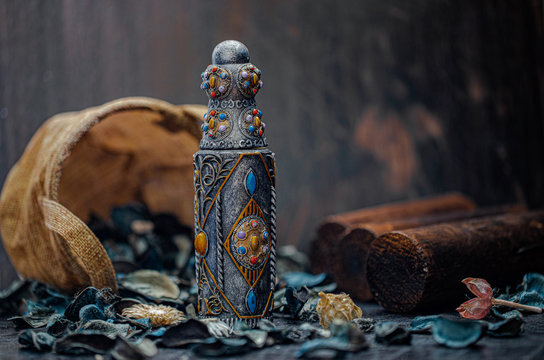
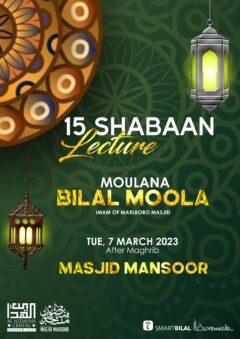

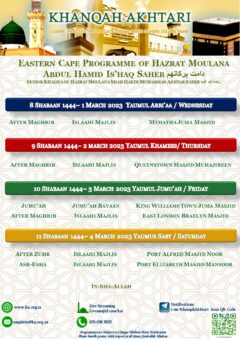
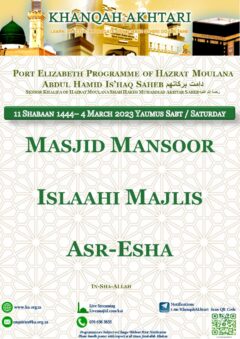

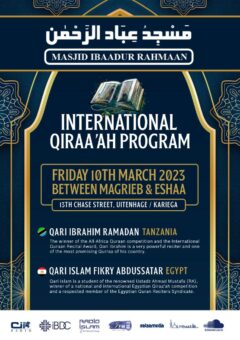



COMMENTS